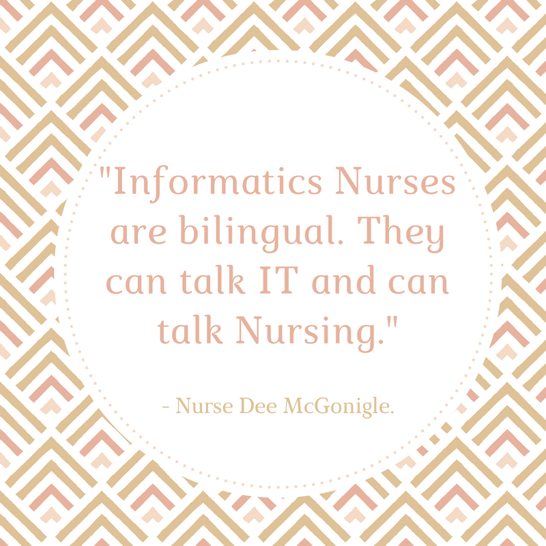By Jennifer Larson, contributor
If you enjoy posting photos of your family on Facebook, watching videos on YouTube or pinning pictures of mouth-watering desserts or stylish outfits on Pinterest, you’re not alone. But nurses are increasingly, and more strategically, using social media for professional purposes, too.
AMN Healthcare recently released the results of its 2013 Survey of Social Media and Mobile Usage by Healthcare Professionals, which looks at job search and career trends. The survey found that registered nurses, along with other clinicians, have “dramatically” increased their use of social media for job searching since 2010.
The vast majority of nurses, 88%, report they use social media for personal and/or professional purposes, and nearly half (43%) say they use social media for job searching.
Social media researcher and nurse Pamela Ressler, RN, MS, said she expects that nurses’ use of social media for a variety of purposes will continue to increase.
“Social media in and of itself is maturing,” said Ressler, who recently authored an online curriculum titled “Social Media for Nurses” for Sigma Theta Tau International. “Health care professionals, in particular nurses, have been very slow in the adoption of social media in the way other professions have. We’re a little late to the party but we’re learning.”
“I think the expectation is that people are going to be more involved” in using social media, added Marie-Elena Barry, RN, MSN, senior policy analyst for nursing practice and policy for the American Nurses Association.
Social media for nurses augments other job resources
The AMN survey found that, generally speaking, nurses and other clinicians are using fewer resources to search for jobs, but they’re becoming more discerning in the way that they do so.
Social media is just one of the tools that they’re incorporating into their job seeking, and they tend to use it for looking at job postings, researching companies and seeing if anyone in their network could help them out.
The top RN job search resource is applying directly to a company website, and has stayed steady at 2011 levels of 72%, followed by online job boards at 55% (also remaining steady). Referrals are used by just under half (47%) of all nurses down significantly from 70% in 2011. Other significant shifts in this year’s survey include decreases in nurses’ use of search engines and recruiters.
Eventually, anyone who applies for a job is going to have a direct conversation with a recruiter or human resources member. But long before that step in the process, nurses can use social media to their advantage in gathering information, said Ralph Henderson, president of healthcare staffing at AMN Healthcare. Nurses can use their network of contacts to find out who’s hiring, who may be hiring soon, and what it’s like to work for those health care employers.
“When you do find a job that you’re interested in, use your network to find out more about that organization,” he suggested. “You can use social media to find out what the culture and work environment is like before you apply.”
LinkedIn now in top spot
Another notable finding in this year’s survey: LinkedIn has finally upstaged Facebook in popularity as the main social networking choice for career purposes among health care professionals. Among nurses, 46% ranked LinkedIn as the top general social media site for career purposes, compared to Facebook at 42%.
Given that LinkedIn was designed as a professional networking medium, it’s not too surprising that nurses are turning to it for professional reasons, said Barry.
“It’s a really good way to share your information and people can reach out. It’s a great way to network and get new ideas,” she said.
In fact, Barry noted that she has personally started using LinkedIn much more in recent months for professional purposes. The ANA recently launched a staffing group on LinkedIn, and she’s become very involved in that.
“LinkedIn has become much more robust and has a lot of similarities to the conversational tone of Facebook now, with its groups,” said Ressler. “People are using it in a different way than LinkedIn was originally being used, which was just posting your profile up there and looking for jobs. Now there’s a lot more professional discussion going on on that site.”
Barry and Ressler both suggested that nurses search for groups on LinkedIn that they might already be affiliated with--a professional association, an alumni group or a specialty organization. Then follow companies or universities or organizations of interest, and follow links to new articles and journal postings to keep current.
Even if you are not actively seeking a new job, it’s important to stay active and keep learning, they stressed. Eventually you might need to call upon your network that you’ve already built and nurtured.
When asked which health care-focused social media sites they prefer for career purposes, nurses chose NursingJobs.com as their top choice at 51%; NurseZone.com was also among the top favorites, cited by 32% of the nurses surveyed.
No risky moves
In the nursing profession, you may still hear the occasional tale of social media use gone terribly wrong: a nursing student posts a picture of a patient without the patient’s permission, or a nurse makes an offhand, cutting remark about a colleague on Facebook that comes back to haunt her.
Luckily, those mistakes appear to be fewer and farther between, as nurses have become more social media savvy. But just avoiding egregious problems doesn’t mean you’re making the most out of your social media presence. Managing your online reputation also means putting your best foot forward--at all times.
Henderson said that nurses should carefully consider images or information that they post on a social media platform. Like many, he suggests having a personal (private) presence and a separate professional presence.
On the professional side, Barry said she would encourage nurses to put together a very complete résumé and ask someone to carefully edit it before posting anywhere. Then check with references to make sure they’re on board, and put all that together on LinkedIn--or in shorter formats on other platforms.
Ressler also pointed out that it is important to regularly update your online profile--both to keep it as current as possible and to remind your network of contacts that you’re out there. More and more nurses appear to be taking this advice to heart, with 59% reporting in the AMN survey that they have recently enhanced their social profile for professional purposes.
“Even if you’re not looking for a job right now, people will think of you when something comes across their desks,” she said.
Another important reminder: just because you have privacy settings, it doesn’t mean that the information will necessarily stay private.
“I just think that people need to be cognizant of what you’re posting, any comments or any pictures, because it’s there forever,” said Barry.
Fast facts from the 2013 Survey of Social Media
AMN Healthcare’s 2013 Survey of Social Media and Mobile Usage by Healthcare Professionals was conducted in the spring of 2013. Out of the 1,902 completed surveys, more than 500 were completed by registered nurses and advanced practice nurses.
A few key findings:
-
Nearly 9 out of 10 (88%) of the nurses surveyed say they use social media for personal and/or professional reasons;
-
Among RNs who use social media for job searches, 49% use it to look for job postings, 39% to research a company, 25% to see if they know anyone who could help them in their search, 13% to reach out to a recruiter, and 6% to reach out to the HR department;
-
More than half of the RNs surveyed (54%) said they have looked for a job in the past two years, down from 61% just two years ago;
-
Most nurses are still applying directly to companies via their websites; this key job search resource remained steady at 72% in 2013;
-
Nurses who use social media for job searching cited NursingJobs.com as their top site of choice (51%);
-
Twenty percent (20%) of clinicians have chosen to receive mobile job alerts, a doubling since 2010; RNs and allied health professionals are the most likely to choose this option.
© 2013. AMN Healthcare, Inc. All Rights Reserved.
Source: NurseZone.com
 Frontline healthcare workers face stressors during normal times, but especially now during a pandemic and hospitals are finding new ways to help their staff cope.
Frontline healthcare workers face stressors during normal times, but especially now during a pandemic and hospitals are finding new ways to help their staff cope. 


 Technology is an integral part of almost every field of work and in order for Health systems to stay on the cutting edge you need a healthcare IT professional on staff. This is where the Nurse informatics specialist comes in.
Technology is an integral part of almost every field of work and in order for Health systems to stay on the cutting edge you need a healthcare IT professional on staff. This is where the Nurse informatics specialist comes in. Informatics Nurse isn't a new career choice. Joyce Sensmeier, vice president of informatics at
Informatics Nurse isn't a new career choice. Joyce Sensmeier, vice president of informatics at